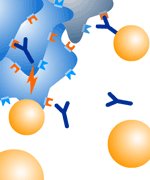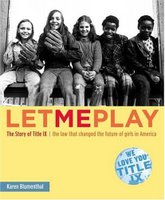The 31st Meeting of The Skeptics' Circle
Welcome to the 31st Meeting of The Skeptics' Circle. Check, check... one, two...is this thing on?
Many advanced degrees but they still can't teach us how to use A/V equipment, eh? Hey, Matt, Pooflinger..whatever, could I trouble you to grab me another Kulmbacher Eisbock while we get going? Uh, and, yes, please do carry mine back with your other hand - I'd like to be certain that the dark color is due to the roasted barley.
The Invocation
Before we get to the proceedings, just a few announcements: Let's raise our glasses to Brothers Orac and Skeptico for their recent coverage in The Financial Times, "Ask the Expert: Should the Old Media Embrace the New?". The fact that the FT questions the relevance of our compatriots speaks volumes about their impact in combatting the international spewage of uncritical blathering. Here's to our brethren and all of y'all who keep on "fighting the good fight for science, skepticism, and critical thinking." And, yes, yes, Tara, "brethren" refers to all genders, by my definition at least.
Speaking of our gratitude for lady writers (hat tip: Mark Knopfler), is there some sort of Skeptics' Circle icon we could pass along to Associated Press writer, Jennifer Loven? Indeed, we are to be an apolitical gathering but her work of last week has nothing to do with the political content of her outstanding article. With the help of Drudge's 10 million readers per day, Jennifer's article pushed the straw man fallacy into the lexicon of the general public. I've tried getting hold of Jennifer to be here to accept this "Straw Man Slapdown" award, but AP has her sequestered a bit due to questions about her motivations. Some may say (<- see, not a straw man since it is attributed to a real source) she wrote an "unvarnished partisan piece" and that "AP is pro-terrorist," but I choose to honor her for bringing critical thinking skills to the mainstream reader.
Lastly, and not at all the least, I'd like to play for you Dr. James Randi's audio message of thanks for everyone's best wishes following his recent cardiac bypass surgery and ongoing recovery. Let the record show that PLittle also sends you his specific note of admiration this week. Wish you were here to join us, sir, but it is fabulous news to learn that you intend to be back at JREF's Swift in the next two months. Here's to your continued good health and speedy recovery!
Okay, in calling the Circle to order, I would like to thank Orac for offering me the podium at such an early point in my blogging career. We've had a great two weeks of skeptical blogging, great publicity, and an abundance of responses from North America, Australia and New Zealand, the UK and Sweden, and even the Philippines. I really appreciate the sacrifices you've made to all be present tonight at the Terra Sigillata Pub.
Skeptics ARE Happy Folk Leading Meaningful Lives
Look at us all - happily enjoying food and grog in a most jovial setting, encouraging and congratulating one another. What a fabulous gathering!
I hereby nominate Skeptic Rant for the most literary, engaging, and uplifting post of this Circle. Let Bygones Be Bygones - these are indeed the days of miracles and wonder.
Heathen Dan of Expletive Deleted, thanks for sharing with us your personal take on the concept of subjective validation. What's this???? Another happy skeptic? From England, no less?? Oh, whoops, the Philippines - a wee bit different, eh? Anyway Dan, here's to you and your girlfriend on her pregnancy - the joy in your life has only just begun!
We've had some technical difficulties, but I truly wish to include the post from EoR on Biomesowoo from The Second Sight because I have never yet heard of this pitch of woo. While we get this worked out (okay, it's now fixed!), take a gander at his touching eulogy for his old friend, Fred. I selected this memorial post to address critics who claim that skeptics are just a bunch of sad, cranky people leading meaningless lives. Our thoughts are with you, EoR, on your loss and we honor and celebrate a well-lived life.
The Realm of the Feet
Clark Bartram of Unintelligent Design deconstructs a home electrical appliance intended to take advantage of reflexology pressure spots. Now, frankly, this ol' boy is man enough to admit his love for a good foot massage (receiving one, of course!). So I really don't care if the person doin' the givin' wants to call it reflexology and invoke all sorts of bodily system connections between my feet and, say, my genitalia. (Insert crude remark here). But take a look at the reflexology map on Clark's post: the right lung/bronchus spots are denoted on both feet, with nary a mention of the left lung and bronchus. Why would such a so-called holistic practice be so discriminating, humiliating, and exclusive of the left lung??? I'm outraged! I need a foot massage!
Ahh, but I see that Martin Rundkvist has just arrived from Stockholm with his mother-in-law's Medicinal Rubber Mallet to help address my troubles in the Realm of the Feet. This is the first I have read of Martin's Salto Sobrius and we look forward to his other posts.
How Should "Experts" Be Defined?
The next order of business relates to the threats on rational thinking, public policy, and all the advances we have made in science and medicine over the last several hundred years. This discussion follows nicely from the FT coverage of Orac and Skeptico, card-carrying experts if I've ever seen them.
Professor Tara Smith, an infectious diseases epidemiologist from the middle of the US heartland, will take the floor now with her analysis of a recent discussion on how to critically evaluate expertise and the weight of authority in arguing a particular issue. Tara is all too familiar with this issue as her blog, Aetiology, has been victimized by rants from commenters of dubious authority or, worse, authoritarians with really poor manners and debating skills. I would have killed to have been able to recruit such an energetic and prolific junior faculty member to my previous academic department - don't let the trolls get you down, Professor.
Mark Chu-Carroll, could you stand up and be noticed? Folks, now here is what they call an expert, and an approachable one at that. Mark is a hot new mathematician blogger with a great post on how AIDS/HIV denialists have been pointing to Professor Rebecca Culshaw's change of heart about the link between HIV and AIDS as evidence for their position. Unfortunately, as Mark explains, Professor Culshaw's explanation of her change of heart is an example of how not to use mathematical models correctly.
Dr Bob? Hey, Dr Bob - I know you've got a lot of books to autograph and inscribe but could I get your attention for a moment? Dr Bob Carroll, author of The Skeptic's Dictionary, has a really nice post in his Mass Media Funk section on the war on science.
Evolve Or Die
JM O'Donnell at Immunoblogging has quite insightfully commented on Nature's analysis late last year on the accuracy of Wikipedia relative to Britannica. As the music recording industry has learned, evolve or die. Joseph has also started a series on bovine tuberculosis and badgers in England that promises to become more skeptical in future installments. BTW, Joseph, did you sneak in any of that great New Zealand Sauvignon Blanc and leg of lamb?
We all continue to be a bit concerned about the prolific output and risk for burnout relapse by Matt at Pooflingers Anonymous. I guess I won't be doing him any favors since he sent me two posts and both are quite spot on: refuting the creationist kneejerk mantra, "But they're still..." and an encore fling o' the poo toward those who insist that Homo sapiens has not yet adapted to eating meat. Pass me the carne asada, wouldja? Uh, yes, with the other hand, please.
Skeptics Protect Society From Dubious Products and Practices
Liz Ditz was kind enough to nominate a special ed teacher's The Life That Chose Me and his post on The Fleecing of the Autism Community.
While we're on the topic of autism, Kevin Leitch of Left Brain/Right Brain will tell us about DAN! Protocol for Dummies. Kevin, is this right? You don't have to be a doctor to be a DAN! Doctor?
Professor Bleen of Look Out, It's Evil!, you've raised some very crucial issues on the marketing of direct-to-consumer genetic testing kits, drawing parallels to the Wild West mentality that permeates much of the dietary supplement industry.
Moving closer to my area of scientific expertise, The Saga of Runolfr's, Lord Runolfr has a few words to say about Hoodia gordonii, an African cactus-based herbal medicine with purported appetite-supressing and weight-loss activities. When I read his e-mail, I was linked to an advert for a transdermal dosage form for Hoodia (note to marketers: transdermal dosage forms of dietary supplements are in violation of the US DSHEA laws - be checking your mailbox for a letter from the FDA, FTC, or both). I won't ruin his punchline, but I need this stuff like I need a hole in my head.
By the way, barley, hops, and alcohol are natural products - would someone ask the beer mistress to get me a Duck Rabbit Porter, please?
Skeptics Preserve Medical Integrity and Information
Okay, So I'm Not Really A Cowboy holds forth with a primer on stem cell research.
Skeptico, we know you've been a bit bogged down as of late with non-blogging issues, but appreciate that you still had the time to submit a post on the fallacy that we only use 10% of our brain, as brought to us by the Shell Oil Corporation. (Insert oil company executive/politician joke here.).
I should note to those gathered that Skeptico also nominated this outstanding letter to a concerned parent by Dr Flea. Flea is a fabulous new medblogger cited often by Skeptico and Orac. Heck, I played bass in a rock band with several MDs, so Flea gets my vote for all-around kool and smart dude. Dr Flea, you rock, bro!
I'm Sensing Some Unusual Energy...
Oh, sorry, it's just gas.
Adam at Daylight Atheism, you've raised the oft-considered question on why self-proclaimed psychics don't use their powers to win lotteries and such. I am seeing...uh.....mmm...I'm seeing your post appearing somewhere...somewhere with wide readership...I see other like-minded critical thinkers...do the letters "SC" mean anything to you?.
Thursday at Polite Company has his own take on the whole psychic business, part 3 in a series initiated when Lord Runolfr was host. Your post is great but, to be honest, I was so distracted looking at pictures of your stunningly beautiful homeland in British Columbia. Plus, you dig Lou Reed and Tom Waits - welcome!
Rounding out this triad on psychics, BigHeathenMike of Mike's Weekly Skeptic Rant tells us, "I was watching television yesterday for the sole purpose of getting myself pissed off enough to write a blog entry." Okay, so maybe not all skeptics are happy all the time. You Seem to Have a Dent in Your Brain Chakra is a post about a recent Unexplained Mysteries program. Mike, you're Canadian, eh? I'll try to do my best Dan Aykroyd impression: "Hello, Tele-Psychic?" Alright, alright, that's why I'm not a professional comedian...could the bartender send down a Paulaner Salvator, please?
Oh, and I almost forgot another discussion of unusual energy that's not exactly psychic. PLittle of Aurora Walking Vacation, could we impose on you to discuss the principles underlying the appearance of ectoplasm and other ghostly images in photographs?
The Value of Skepticism in Teaching, Learning, and Living
This goes without saying, right? If you can't think critically, you're going to have more problems in life than the damage done by thinking the world is 6 000 years old. If kids can't think critically, they will fall prey to all sorts of hucksters, from used car salesmen to late-night infomercials.
Calladus gets my vote this Circle for "engineering" the best narrative on leading on an altie. As I read, I honestly thought that he was going to take the young lady home to discuss his "energy vortex" (the setting was Las Vegas, after all), only to learn that he was happily married. However, among the Google ads in the side bar of our e-mail exchange: you guessed it, travel to Sedona, Arizona, new age home to one of the world's most powerful energy vortices.
Chemjerk has set up an interesting experiment with his high school students to learn whether atheists are indeed, "seen as a threat to the American way of life by a large portion of the American public." His experiment is remeniscent of the 1956 Horace Miner anthropological study of cultural practices of the Nacirema people. We all eagerly anticipate the results of Chemjerk's informal exercise.
Skeptics Appreciate Thoughtful Input
Orac, you were kind enough to submit two posts, but I really think we need to concentrate on this one, Out of Work Due to Woo, and I don't mean because you're home with your significant other enjoying each others' "company." Following from EoR's tip that Australian employers are now able to accept work absence notices from alternative practitioners, Orac had tried to collect submissions of the most witty excuses. The comments got off topic and I'd really like to appeal to the creativity of those gathered here today, with the intellectual fueling of these fine pub offerings, to revisit Orac's post and suggest your own alt med certificate of absence from work. My own was, "My karma ran over my dogma," but then again, you see what kind of comedic talent I (don't) have.
Mark at Be Lambic or Green offers a similar request, in this case for old wives' tales and their truth or not. Aye, Mark, your site while English reminds me of my honeymoon with PharmGirl in Paris, enjoying an incredible selection of lambics at La Gueuze, just down the street from the Pantheon near the Sorbonne. I'm also an oenophile, but this was by far the drinking highlight of our honeymoon.
Now, there were a couple of very nice submissions not presented this evening, but they were a bit more political than were comfortable with at this gathering. However, there's some great writing out there and those who didn't make it to the Circle for one reason or another should definitely submit to other political carnivals. If I missed anyone who thinks should have been posted here, please let me know ASAP and I'll fix any omissions.
Alright, alright - now does everyone have a designated driver? Y'all are free to crash here but I know we've got work to do. I hereby hand the gavel to Matt at Pooflingers Anonymous who will be the next host for The 32nd Meeting of The Skeptics' Circle on 13 April 2006. Remember to check the schedule and guidelines.
Take care and travel safely!










